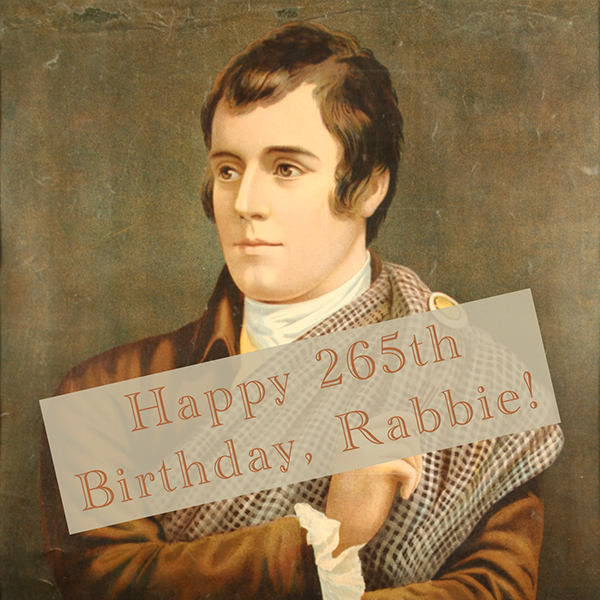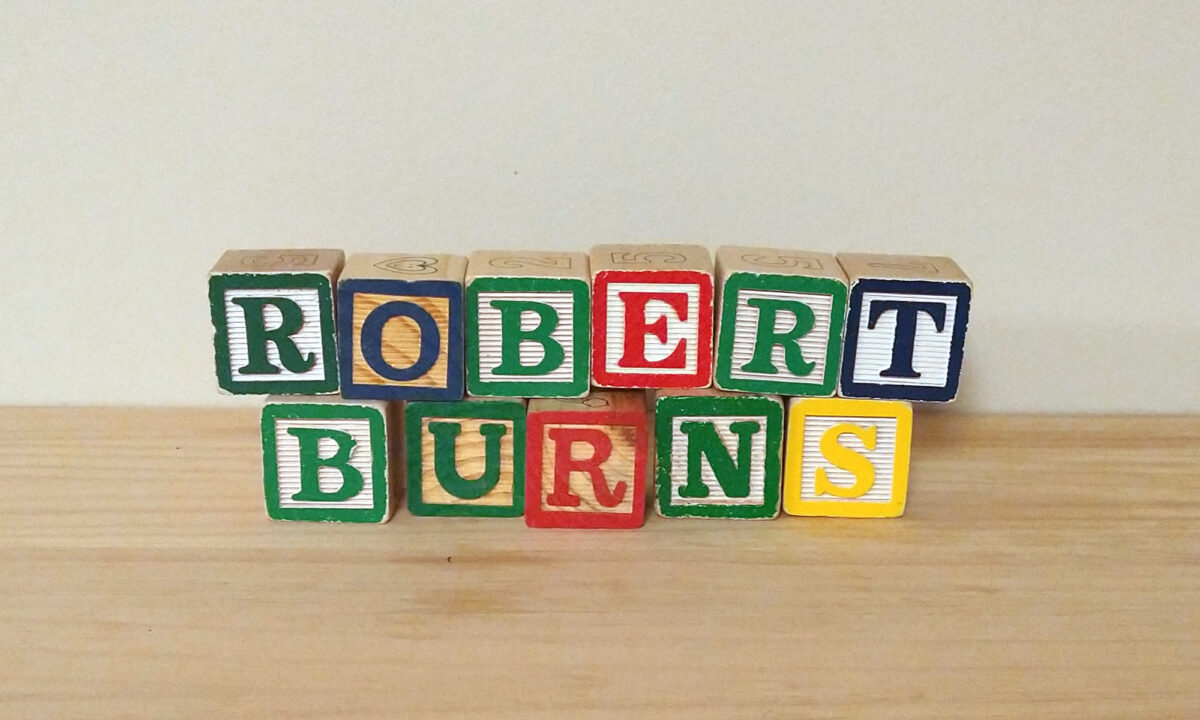This week Robert Burns turns 265! Each year on January 25, Scotland’s beloved national poet is celebrated in style with song, recitation, and of course, a haggis. It’s all a lot of good fun, but it’s also an important celebration of Scotland’s ability to maintain its own distinct cultural and linguistic traditions in the face of quite a lot of pressure from the more politically dominant forces coming from England.
Helping me this week with delightful poetry readings are Kate, who is a native of Angus on the east coast, and Eileen MacLean, who comes from the western highlands. It’s pleasant and interesting to hear the differences in their dialects, and they give wonderful readings of “Address to a Haggis,” “Afton Water,” and “To a Mouse.”

Robert Burns defied tradition. He came from a humble background, without the advantages of high education or a family name that signaled power. But by fully embracing his culture, and the minority dialect he spoke, he created a body of work that is more loved with every passing year.
If you celebrate Robert Burns this week, let me know! I’d love to see how you honor his life and work.
Activity: Have a Burns Supper!
You and your kids can replicate part or all of a Burns Supper, a traditional Scottish party that celebrates the life of Robert Burns, Scotland’s national poet. Usual events of a Burns Supper include:
- Playing traditional Scottish tunes on the bagpipes or with a fiddle
- Beginning the meal by reciting the “Selkirk Grace,” a funny short poem of gratitude for the food
- Soup
- Standing as the haggis is brought in, followed by a reading of “Address to a Haggis.”
- Main course, followed by dessert.
- Guests may toast one another during or after the meal.
Teachers can use recorded music and recorded recitations of the poems if needed, as it is difficult for those unfamiliar with Scottish dialects to perform them.
When listening to the poem “Address to a Haggis,” provide a printed copy and a pencil to the children so they can circle unfamiliar words. After listening to the poem, identify and discuss these words. Then listen to the poem again. As students to describe what it was like to hear the poem again after getting a little more familiar with the Scots dialect.

